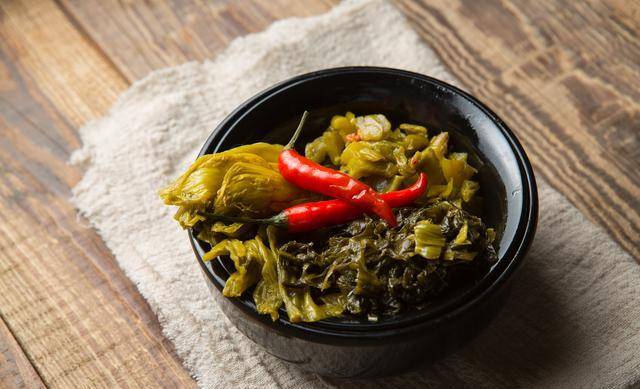Hypertension is a common cardiovascular disease, and dietary regulation plays an important role in treating and controlling hypertension. For hypertensive patients, understanding which foods to eat less of or avoid, and how to scientifically balance their diet, is key to ensuring stable blood pressure. This article will detail the considerations for hypertension diet, helping you stay away from dietary “minefields.”
I. Four Kinds of Vegetables, Hypertensive Patients Need to Be Cautious
1. Pickles: Pickles and other high-salt foods contain a lot of sodium, excessive sodium intake can lead to high blood pressure. Hypertensive patients should try to avoid consuming pickles to avoid worsening their condition.
2. Spinach: Spinach contains oxalic acid, which combines with calcium in the body to form calcium oxalate, which can easily lead to kidney stones. Hypertensive patients have a higher risk of kidney stones, so they should reduce their intake of spinach.
3. Onions: Although onions have a high nutritional value, its special components may raise blood pressure. Hypertensive patients should consume onions in moderation to avoid excessive intake.
4. Potatoes: Potatoes contain a large amount of starch and carbohydrates, excessive consumption may lead to high blood sugar, affecting blood pressure. Hypertensive patients should control their intake of potatoes.
II. Considerations for Hypertension Diet
1. Low-salt Diet: Hypertensive patients should follow a low-salt diet, reduce sodium intake. It is recommended to not exceed 6 grams of daily salt intake, avoid high-salt foods like salted fish and pickles.
2. Moderate Intake of Protein: Moderate intake of high-quality protein, such as fish, chicken, tofu, can help lower blood pressure. However, attention should be paid to control the intake amount to avoid excessive consumption.
3. Increase Dietary Fiber: Dietary fiber helps lower cholesterol and triglyceride levels, thereby reducing blood pressure. Hypertensive patients should eat more vegetables, fruits, whole grains, and other foods rich in dietary fiber.
4. Control Fat Intake: Reduce intake of saturated fatty acids and trans fatty acids, choose healthy fat sources like vegetable oil, fish oil. Avoid oily and high-fat foods.
5. Limit Sugar Intake: A high-sugar diet can lead to high blood sugar, which in turn affects blood pressure. Hypertensive patients should control their sugar intake and avoid eating too many sugary foods and drinks.
6. Moderate Alcohol Consumption: Alcohol consumption is positively correlated with blood pressure levels. Hypertensive patients should drink alcohol in moderation, with men not exceeding 25 grams per day, and women not exceeding 15 grams per day.
7. Maintain Fluid Balance: Drink water in moderation, with daily fluid intake around 1500-1700 milliliters. Avoid high-sugar and stimulating drinks.
8. Regular and Controlled Diet: Maintain a regular eating habit, avoid overeating, which helps stabilize blood pressure.
III. Scientific Combination for a Hypertension-Friendly Diet
1. Diversify Vegetables: Choose a variety of vegetables, such as tomatoes, cucumbers, carrots, pumpkins, to enrich your table.
2. Moderate Fruit Consumption: Consume fruits moderately, such as apples, bananas, oranges, to supplement vitamins and minerals.
3. Whole Grain Foods: Eat more whole grains, such as oats, brown rice, whole wheat bread, to help control blood sugar and cholesterol.
4. High-Quality Protein: Moderately consume fish, chicken, tofu, and other high-quality protein foods to meet the body’s needs.
5. Healthy Fats: Choose healthy fat sources like olive oil, fish oil to avoid oily foods.
Conclusion: Hypertensive patients need to pay special attention to their diet, avoid high-salt, high-fat, and high-sugar foods. Eat vegetables, fruits, whole grains in moderation, maintain a balanced diet to help stabilize blood pressure, reduce disease risks. Additionally, developing good eating habits, following medical advice, actively cooperating with treatment, can truly achieve control and recovery from hypertension.


